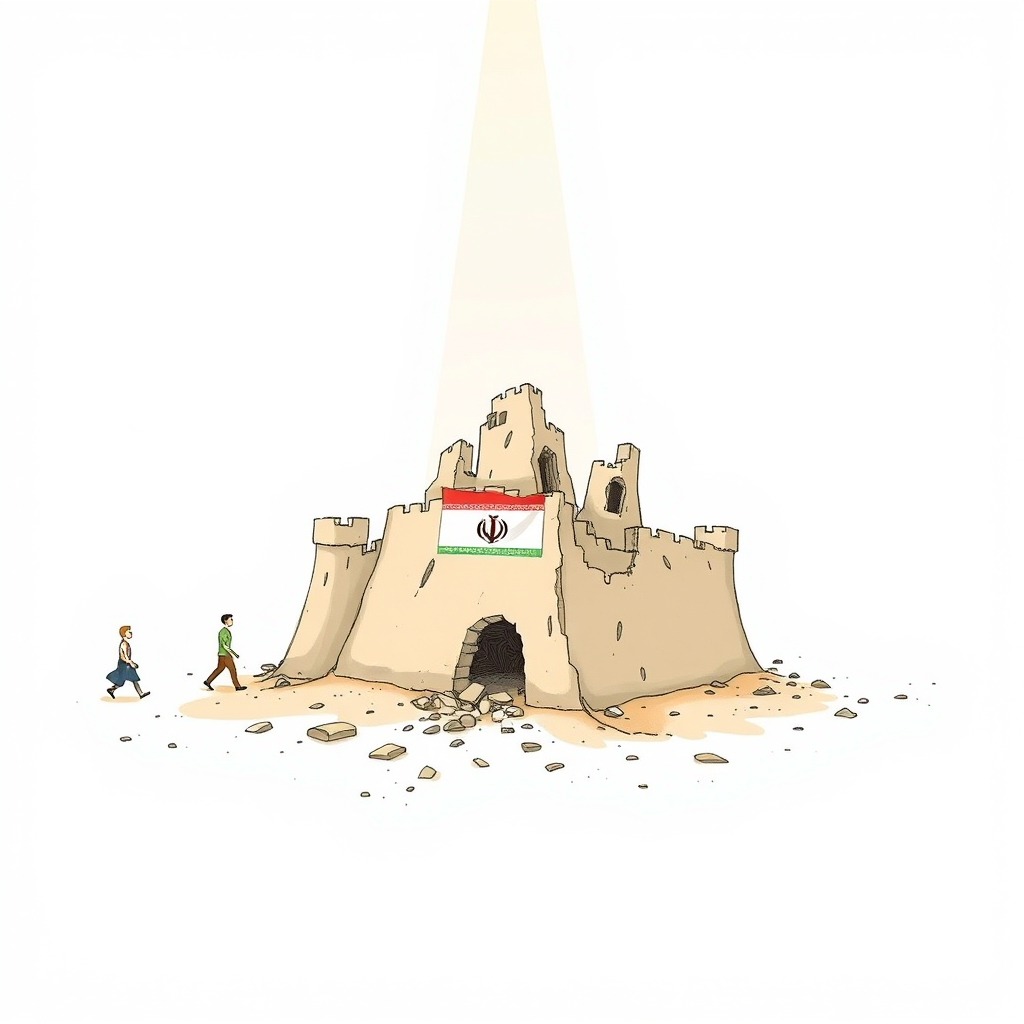Iran’s Isolation Nears as Allies Abandon Regime

Iran finds itself increasingly isolated on the regional stage, a consequence of decades of pursuing an expansionist foreign policy and a fundamental miscalculation of its alliances. The current escalation, marked by significant setbacks for Iran’s military command and calls for “unconditional surrender” from the U.S., isn’t a sudden crisis, but the culmination of a long-term strategy that has backfired spectacularly.
For nearly five decades, Iran’s leadership has championed “exporting the revolution” and a doctrine of “forward defense,” attempting to establish regional dominance by cultivating proxy groups and exploiting existing grievances, particularly concerning the Palestinian issue and the marginalization of Shi’ite communities. While initially appearing successful – with groups like Hezbollah gaining prominence – this approach ultimately created vulnerabilities. The lack of internal dissent and suppression of opposition within Iran fostered a dangerous blindness to its own weaknesses, leading to overconfidence in its ability to outmaneuver the U.S., Israel, and the broader international community.
Tehran’s belief that it could simultaneously pursue a nuclear program beyond civilian needs and withstand the repercussions of actions like the October 7th Hamas attack on Israel demonstrates a profound misreading of the geopolitical landscape. Crucially, Iran overestimated the depth of its relationships with both Russia and China. While Moscow intervened to support the Assad regime in Syria, it did so to advance its own strategic interests – expanding influence in the region and establishing a military foothold in the Mediterranean. Similarly, the 25-year cooperation deal with China, viewed by Tehran as a sign of rising global power, was seen by Beijing as a limited economic agreement, subsequently stalled.
Today, neither Russia nor China appears willing to intervene on Iran’s behalf. Moscow is preoccupied with the conflict in Ukraine, and Beijing remains focused on its own regional priorities. Even Iran’s proxies are proving unreliable. Israel has significantly degraded Hezbollah’s capabilities, and the group risks losing domestic support if it escalates the conflict. The Houthis in Yemen are constrained by de-escalation agreements, and Iran-backed Iraqi factions are prioritizing self-preservation. Syria, once a fertile ground for Iranian influence, has become increasingly hostile.
Israel has explicitly framed its actions as a means of promoting regional stability, a goal supported by the U.S. While Arab Gulf states have publicly called for de-escalation and pursued rapprochement with Iran in recent years, this appears largely symbolic. They are unlikely to obstruct a reshaping of the Middle East that results in a weakened Iran.
The situation is dire. Iran’s leadership appears to be facing its most critical moment, with few, if any, reliable allies willing to offer meaningful support. The current crisis isn’t simply a military conflict; it’s the unraveling of a decades-long strategy built on miscalculation and a failure to accurately assess the shifting dynamics of power in the Middle East. The regime’s long-held ambitions appear to be collapsing, leaving it increasingly isolated and vulnerable.